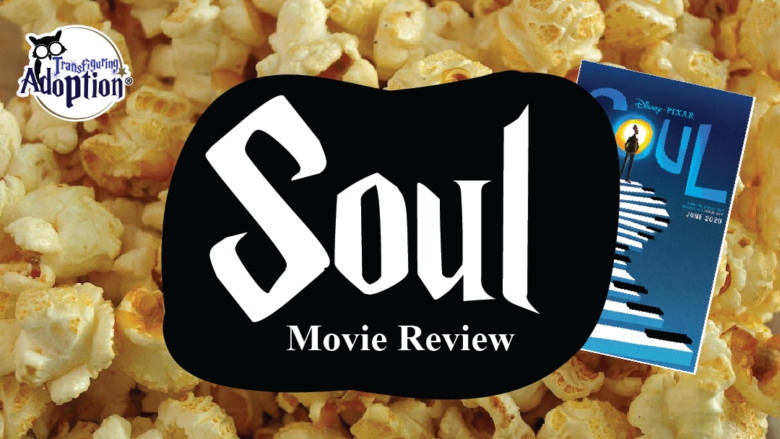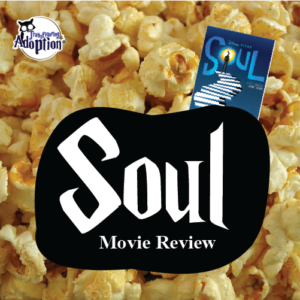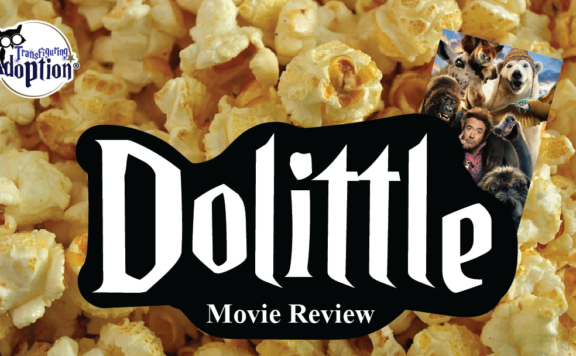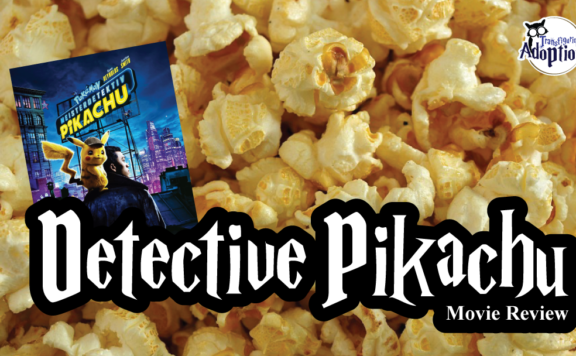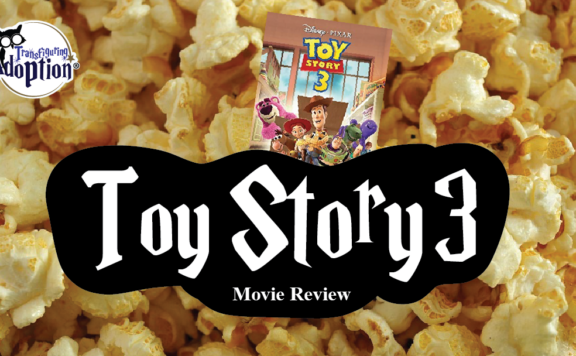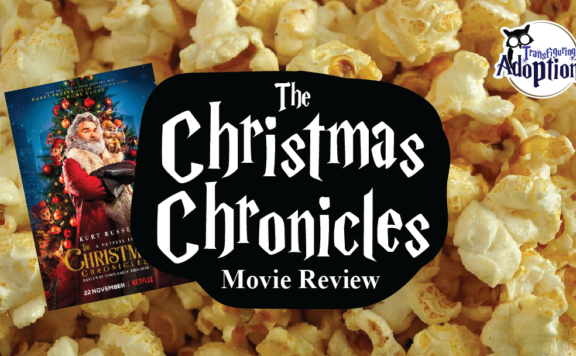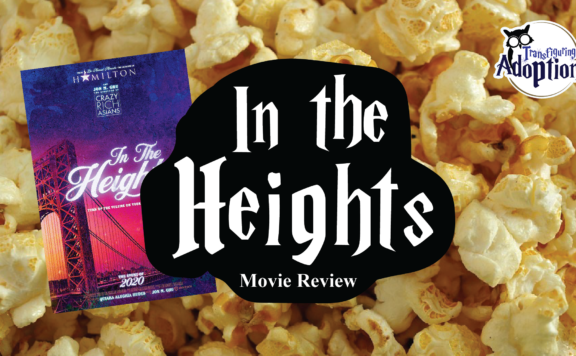Grade:
Transfiguring Adoption awarded this movie 2 Hoots out of 5 based on how useful it will be for a foster/adoptive family. [Learn more about our Hoot grading system here]
Movie Info:
-
Rating: PG (some language, thematic elements)
-
Genre: Animation, Adventure, Comedy
-
Runtime: 100 Minutes
-
Studio: Disney/Pixar
From the Cover of Soul by Disney/Pixar:
“A musician who has lost his passion for music is transported out of his body and must find his way back with the help of an infant soul learning about herself.”
Transfiguring Adoption’s Overview:
Soul is the newest offering from Pixar animation and tells the story of Joe Gardner (Jamie Foxx), a band teacher who dreams of being a professional musician. Through a series of mishaps he winds up in an alternate reality mentoring a young spirit, 22 (Tina Fey) on a search for their ‘spark’.
There is a LOT to unpack in the film and it took a week and a re-watch to fully process it. Pixar has always been really good at managing to make films for children that are thought-provoking but still fun for them to watch, and that have elements for adults to enjoy. With Soul, they make a slight break from that formula and this one really feels like one that is aimed directly at the adults, rather than a movie that’s equally enjoyable for the entire family.
Personally, I enjoyed the film on an intellectual level, and think it is definitely a vehicle to get some conversations started about some pretty in-depth topics. That said, it is definitely not a film made for children, despite the marketing campaigns targeting them. Very young children might enjoy the color and sounds of the movie without being able to understand the plot, but I think it’s one that elementary-aged kiddos will struggle with. It’s definitely aimed towards teens and adults. I would also urge caution before allowing kids who have experienced trauma to watch it, there were a few pretty big triggers. Definitely one to watch ahead of time before the kids do, and to be prepared to discuss some heavy topics after viewing, as littles will likely have lots of questions come up: about life and death, souls vs. bodies, the meaning of life, etc.
** Spoilers Could Be Ahead **
How Is This Relevant To Adoption & Foster Care?
Soul does not directly address foster care or adoption in the film. That said, I think children who have experienced trauma, especially ones who are neurodiverse, will relate to the character of 22. 22 is a new soul who has not yet been to Earth. All new souls are given mentors, recently departed souls who are supposed to help them find their ‘spark’ and get to Earth. Most new souls only need one mentor to achieve this task. We learn that 22 has been through dozens of mentors and never managed to make it to Earth. What’s more, most of these mentors tell 22 that they’re annoying and that they ‘hate’ them by the end of their time together. By the time we meet 22, they claim that they don’t want to go to Earth because everything is ‘too bright and too loud’ there. But later we learn that they’re anxious about choosing the wrong purpose and somehow messing up when they get to Earth. This, coupled with their inability to find their ‘spark’ and repeated verbal abuse by the mentors in their life, has led them to feeling worthless and lost. Many kids who have experienced trauma, especially at the hands of their own caregivers, will likely understand and empathize with 22. Many kids who have experienced trauma also develop issues with sensory processing and like 22 may find that things are often ‘too bright’ or ‘too loud’ and feel like they don’t fit in with their peers.
Discussion Points:
- Adjusting to New Environments
This theme comes up during the film in several different ways. First, Joe falls through a manhole and winds up in a dark place where souls are headed to The Great Beyond. He panics and flees and winds up falling into The Great Before. He is startled by the differences in these new places compared to the life and world that he knew and struggles to understand and adapt. He instead desperately tries to find a way back to Earth and his old life saying, “I’m not finished, I gotta get back!” He tries sneaking back and even trying to steal someone else’s Earth badge. Much in the same way, children who have been suddenly taken from their biological home and placed in foster care or adoption might be desperate to get back to their previous home or family- this may manifest as running away or acting out in the hopes of being sent back. On the opposite side of the spectrum we have 22: a new soul who is tasked with finding their ‘spark’ and then going on to Earth. 22 resists this, saying that they would rather stay where they are forever. They say, “I’m comfortable up here. I have my routine… it’s not great but I know what to expect.” Children will likely relate to this sentiment as well, especially when facing a new transition. Having been through trauma, their experience tells them that new and unknown things are likely scary or painful. Change can be hard for all of us, but especially our kiddos from trauma. Use this as an opportunity to talk with them about their own worries regarding leaving their comfort zone and how you can help them with whatever transition they’re faced with; whether it’s adjusting to your home, moving to a new home (or back with biological family) or leaving the next to the world of adulthood. - Finding your ‘Spark’
When this concept is first introduced, everyone seems to think that a ‘spark’ is a person’s purpose in life. This is later shown not to be the case and we learn that a ‘spark’ is really an individual’s passion for life, the thing that makes them excited to get up every day. Figuring this out is a key piece of growing up for all kids and teens. And as anyone who’s been around a kid likely knows, this often changes many, many times as they grow up and discover who they really are. When children experience trauma and chronic stress during childhood, this is one of the pieces they tend to miss out on. Instead of deciding between princesses and superheroes, whether they want to be a firefighter or a doctor… all of that energy is focused on surviving. When you have to think about where your next meal will come from or how to get yourself and your siblings through the day there isn’t a lot of time or energy leftover for figuring out what you’re really passionate about. So now that they’re in foster care, or have been adopted into your family, try to give them the space and the support to catch up and figure these things out. Provide opportunities to explore different interests and try new things. Just as the mentors help guide new souls towards their sparks, we as caregivers can help guide our kiddos to find their own. - Dealing with Anxiety and Self-Doubt
22 experiences a lot of anxiety throughout the movie, they struggle to find their ‘spark’ and worry about what that says about them. They worry about choosing the wrong passion or not being good at living on Earth. They are plagued by feelings of self-doubt and worthlessness that stems in part from these anxieties as well as being told repeatedly that they’re annoying or not worth the mentors’ time. Children from a background of trauma often experience similar feelings of anxiety and doubt. If they experienced abuse or neglect from caregivers, they may feel like they’re not worthy of love and attention. They’re likely anxious about the uncertainty their futures hold and have long-term effects of the chronic stress they’ve experienced in life. One of the ways 22 is able to overcome their anxieties about being on Earth is in finding joy in small things; whether that’s trying pizza for the first time, listening to someone else talk about how much they love music, or watching a leaf float by. This can be a great opportunity to talk about mindfulness and the way it can be helpful when experiencing anxiety. There are lots of easy mindfulness activities to do with kids, such as breathing exercises or using the 5-4-3-2-1 grounding method (name 5 things you can see, 4 you can touch, 3 you can hear, 2 you can smell, 1 you can taste). These activities can help kiddos refocus on the present moment and thus help reduce some of their anxiety (since all anxiety stems from thoughts of the past or the future).
Cautionary Points:
- Death
This is a big one. About 10 minutes into the movie the main character falls into an open sewer grate and appears in another world (which is revealed to be the afterlife, implying he is dead or close to it). It’s very sudden and shocking and may be upsetting. We spend the rest of the movie split between Earth and The Great Before/Beyond, meeting a number of characters who are technically dead. This may bother some children who are able to understand that connection. - Discussion of the ‘afterlife’
This goes along with the previous point but is worth noting separately, as it may be a cautionary point unrelated to trauma specifically. The movie spends a great deal of time exploring the ‘afterlife’ with locations such as ‘the great beyond’ (where souls go after your earth life ends) and ‘the great before’ (where souls are at before coming to earth). These types of concepts tend to be something that is typically reserved for religious discussions, and beliefs vary depending on a family’s religious views. So it’s something to keep in mind before viewing, depending on your own personal beliefs surrounding this topic and the ability of your children to be able to discern between a movie/fantasy and reality. Additionally, with foster and adoptive families we are sometimes in a situation where children have different religious views from their biological families vs. their current family so it’s something to be mindful of. - Mild Language
A few instances of mild language use. For example, there is a scene where the ‘new souls’ (portrayed similarly to young children) all start saying the word ‘hell’ after hearing someone else say it, very much like the way a toddler might repeat swear words. - Mild Cartoon Violence
While in The Great Before we learn that souls can’t be harmed and we see several examples such as a building falling on a bunch of new souls and 22 slaps Joe to prove he can’t feel it. There are also some pratfalls and other physical comedy especially while 22 is inhabiting Joe’s body. - Bathroom Humor
Souls can’t actually eat food so when they try it shoots out of their rear-end. At one point while 22 is inside Joe’s body their pants rip and some jokes about butts are made. - Extreme Verbal Abuse by ‘caregivers’
When 22 is introduced we are told that they have been through many mentors and none of them have worked out. We see a montage of important figures such as Abraham Lincoln and Madam Curie try to help 22 and fail. During this sequence they get easily fed up with 22 calling them annoying and saying they hate them. While mentors aren’t technically a caregiver, they are supposed to be an older ‘adult’ figure helping the younger child-like new souls and are definitely viewed as an authority figure. This sequence is especially uncomfortable because the tone is one of lighthearted humor, using verbal abuse as a gag for laughs.
- The ‘Lost Souls’ are pretty scary
A concept is introduced that there are ‘lost souls’ which are souls who “can’t let go of their anxiety and obsessions” which “leaves them disconnected from life”. We see these souls wander aimlessly as giant black blobs with tentacles and there are a few occasions where they chase other characters around and it’s fairly disturbing and scary.
- 22 is forced to kiss someone while in Joe’s body
While 22 is in Joe’s body, they run into some of his aunts who expect a kiss, as that’s how Joe usually greets them. As part of the ruse Joe insists that 22 do as they would as well. While this is a very brief scene and is intended to be funny it’s also a little bothersome, especially given that 22 is portrayed as being similar to a child. If a child has been sexually abused this might be triggering for them.
- Betrayal by an adult/caregiver figure
Originally 22 is in on a plan with Joe to get an Earth badge and give it to him so he can return to Earth. But 22 realizes in the process that they no longer want to give away their badge and want to experience Earth life for themselves. However Joe refuses to alter the plan and demands the badge which allows him to return to his old life and takes away any chance for 22 to get to Earth. Over the course of the movie Joe has been a mentor-figure to 22, teaching them new things and helping them find their spark. Therefore it’s pretty upsetting to see him selfishly take it away from them in the end, after we were led to believe that he cared about 22. This is likely to be especially hard on children who have experienced caregiver trauma. Because the people who were supposed to love and care for them betrayed that in some way, they often have a hard time trusting adults. So seeing an adult character hurt a child-like one is likely to be upsetting. - Due to abuse, 22 becomes a lost soul (temporarily)
After Joe betrays them and steals their Earth badge, 22 gets stuck in a loop of thinking “I’m not good enough. I got no purpose” and turns into a lost soul, wandering aimlessly and repeating these words over and over again. The scene is fairly scary and sad as we see images of all the former mentors yelling at 22 and saying abusive things to them. Joe eventually does come back to help but 22 is so lost they even attack him before he is finally able to get through and reason with them.
About the Author: Jenn Ehlers.
Jenn is a central Virginia native who received her BA in Psychology from the University of Virginia in 2012. Since then she has worked for a local mental health agency and the Department of Social Services in various capacities and has been involved in her community’s efforts to create a Trauma Informed Network. Currently Jenn works in vocational rehab and mentors youth in foster care. When she isn’t working, Jenn enjoys writing stories, anything and everything Harry Potter, and spending time with her niece and nephew.
**Transfiguring Adoption is a nonprofit organization seeking to nurture growth in foster and adoptive families by giving a HOOT about their families. Transfiguring Adoption does not intend for its reviewers nor its review to be professional, medical or legal advice. These reviews and discussion guides are intended to help parents to better be able to connect and understand their children who come from traumatic backgrounds.
